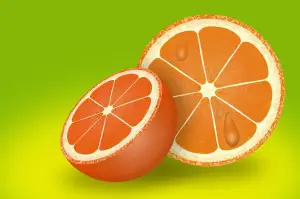Powerful Plant Proteins: Unveiling the Top High Protein Vegetarian Foods for Optimal Health

Introduction to high protein vegetarian foods:
For many people, the idea of a vegetarian diet may conjure up images of salads and vegetables. However, contrary to popular belief, vegetarian diets can be rich in protein. In fact, there are numerous plant-based sources of protein that can power up your health and provide all the essential amino acids your body needs. Whether you are a vegetarian or simply looking to incorporate more plant-based proteins into your diet, this guide will help you discover the wide variety of high protein vegetarian foods available and how they can benefit your overall health and well-being.
Benefits of Including High Protein Foods in a Vegetarian Diet
Including high protein foods in a vegetarian diet offers numerous benefits. Firstly, these foods provide essential amino acids necessary for building and repairing tissues in the body. Secondly, they help to increase satiety and promote weight management by keeping you fuller for longer periods. Thirdly, high protein vegetarian foods are rich in vitamins, minerals, and antioxidants that support overall health and boost the immune system. Lastly, incorporating these foods can improve energy levels and enhance athletic performance.
Top 5 High Protein Vegetarian Foods
When it comes to high protein vegetarian foods, there are several options that can provide the necessary nutrients for a balanced diet. Here are the top 5 high protein vegetarian foods:
1. Lentils: These tiny legumes pack a powerful punch with approximately 18 grams of protein per cooked cup. They are also rich in fiber, iron, and folate, making them an excellent choice for vegetarians.
2. Quinoa: Often referred to as a "superfood," quinoa is not only a complete protein but also gluten-free. With about 8 grams of protein per cooked cup, it is an ideal choice for those looking to increase their protein intake.
3. Greek Yogurt: While most yogurts contain some amount of protein, Greek yogurt stands out with its higher concentration. With around 17 grams of protein per serving, it is a versatile ingredient that can be enjoyed on its own or used in various recipes.
4. Chia Seeds: These tiny seeds may be small in size but they are packed with nutrients, including protein. Just two tablespoons of chia seeds contain approximately 4 grams of protein along with omega-3 fatty acids and fiber.
5. Tofu: A popular plant-based source of protein, tofu offers around 10 grams of protein per half-cup serving. It is also low in calories and cholesterol-free, making it an excellent addition to vegetarian meals.
Incorporating these high-protein vegetarian foods into your diet can help ensure you meet your nutritional needs while enjoying a variety of delicious meals.
1. Lentils
Lentils are a powerhouse of plant-based protein, making them an excellent choice for vegetarians. With approximately 18 grams of protein per cooked cup, lentils provide a substantial amount of this essential nutrient. Additionally, lentils are rich in fiber, iron, and folate, making them a nutritional superstar. They are also low in fat and cholesterol-free, making them heart-healthy. Lentils can be easily incorporated into soups, salads, and stews or used as a meat substitute in dishes like lentil burgers or tacos. Their versatility and high protein content make lentils a must-have in any vegetarian's pantry.
2. Quinoa
Quinoa, pronounced "keen-wah," is a versatile and nutrient-dense grain that is an excellent source of plant-based protein. This ancient grain has been cultivated for thousands of years and was highly valued by the Incas for its nutritional benefits.
Quinoa is not only rich in protein but also contains all nine essential amino acids, making it a complete protein source. This makes it an ideal choice for vegetarians looking to meet their protein needs. In fact, one cup of cooked quinoa provides about 8 grams of protein.
In addition to its high protein content, quinoa is also packed with other essential nutrients. It is a good source of fiber, iron, magnesium, and manganese. It is also gluten-free, making it suitable for individuals with gluten sensitivities or celiac disease.
One of the great things about quinoa is its versatility in the kitchen. It can be used as a substitute for rice or pasta in various dishes such as salads, stir-fries, and pilafs. It can also be used to make vegetarian burgers or added to soups and stews for extra texture and nutrition.
To prepare quinoa, rinse it thoroughly under cold water to remove any bitter coating called saponin. Then cook it using a ratio of 1 part quinoa to 2 parts water or broth until all the liquid is absorbed.
By incorporating quinoa into your meals, you can enjoy its high protein content along with its many health benefits. Whether you are following a vegetarian diet or simply looking to add more plant-based proteins to your meals, quinoa is an excellent choice that will nourish your body and support optimal health.
3. Greek Yogurt
Greek yogurt is a versatile and delicious high protein vegetarian food that can be enjoyed in various ways. It is packed with essential nutrients like calcium, vitamin B12, and probiotics, making it a great addition to a balanced vegetarian diet.
With an impressive protein content of around 17 grams per serving, Greek yogurt provides the body with the necessary amino acids for muscle repair and growth. This makes it an excellent post-workout snack or a satisfying breakfast option.
Incorporating Greek yogurt into your meals is easy. You can enjoy it on its own or use it as a creamy base for smoothies and parfaits. It can also be used as a substitute for sour cream in recipes, adding a tangy flavor and creamy texture.
To enhance the nutritional value of your Greek yogurt, you can top it with fresh fruits, nuts, or granola for added fiber and antioxidants. This will not only boost the protein content but also provide additional vitamins and minerals.
When purchasing Greek yogurt, opt for plain varieties without added sugars or artificial flavors. This allows you to control the sweetness and avoid unnecessary additives. If desired, you can add natural sweeteners like honey or maple syrup to enhance the taste.
Including Greek yogurt in your vegetarian diet is an excellent way to meet your protein needs while enjoying a creamy and satisfying food. Experiment with different toppings and recipes to make it even more enjoyable and nutritious.
4. Chia Seeds
Chia seeds are a tiny powerhouse of nutrition and an excellent source of plant-based protein. These small black or white seeds are packed with essential amino acids, making them a complete protein source. Just one ounce of chia seeds contains approximately 4 grams of protein.
In addition to their high protein content, chia seeds are also rich in omega-3 fatty acids, fiber, and antioxidants. They provide a boost of energy and help promote satiety, making them a great addition to any vegetarian diet.
Chia seeds can be easily incorporated into your meals and snacks. Sprinkle them on top of salads, yogurt, or oatmeal for added texture and nutrition. They can also be used as an egg substitute in baking recipes by mixing one tablespoon of chia seeds with three tablespoons of water until it forms a gel-like consistency.
Including chia seeds in your diet not only increases your protein intake but also provides numerous health benefits. So why not give these tiny superfoods a try and reap the rewards they offer for optimal health?
5. Tofu
3.5 Tofu
Tofu, also known as bean curd, is a versatile and popular high protein vegetarian food. Made from soybeans, tofu is rich in essential amino acids, making it a complete source of protein. It is also low in calories and contains no cholesterol.
Tofu can be used in various dishes, such as stir-fries, soups, salads, and even desserts. Its mild flavor allows it to absorb the flavors of other ingredients, making it a great addition to any meal.
To increase the protein content of your meals, try marinating tofu with spices and herbs before cooking. This will enhance its taste and add an extra punch of flavor. You can also grill or bake tofu for a crispy texture.
In addition to being high in protein, tofu is also a good source of calcium and iron. It provides essential nutrients that are beneficial for bone health and blood circulation.
Whether you're following a vegetarian diet or simply looking for ways to incorporate more plant-based proteins into your meals, tofu is an excellent choice. Its versatility and nutritional benefits make it a staple ingredient for those seeking optimal health through high protein vegetarian foods.
Creative Ways to Incorporate High Protein Vegetarian Foods into Meals
1. Lentils: Add cooked lentils to salads, soups, or stews for an extra protein boost. You can also use them as a meat substitute in dishes like lentil burgers or vegetarian meatballs.
2. Quinoa: Use quinoa as a base for grain bowls or salads. Mix it with roasted vegetables, beans, and a flavorful dressing for a satisfying meal. You can also use quinoa to make vegetarian sushi rolls or stuffed bell peppers.
3. Greek Yogurt: Enjoy Greek yogurt as a high-protein snack on its own or mix it with fruits and nuts for added flavor and nutrients. Use it as a creamy topping for smoothie bowls or incorporate it into dressings and dips.
4. Chia Seeds: Sprinkle chia seeds on top of oatmeal, yogurt, or smoothies for added texture and protein. You can also use them as an egg substitute in baking recipes by mixing them with water until they form a gel-like consistency.
5. Tofu: Marinate tofu in flavorful sauces and spices before grilling, baking, or stir-frying it. Use it as a filling for tacos, sandwiches, or wraps. You can also blend silken tofu with fruits to make a creamy dessert or smoothie.
By incorporating these high protein vegetarian foods into your meals creatively, you can enjoy delicious and nutritious dishes while meeting your protein needs.
Tips for Planning a Balanced Vegetarian Diet with Adequate Protein
1. Include a variety of plant-based protein sources: To ensure you are getting all the essential amino acids, include a variety of high protein vegetarian foods in your diet. Mix and match lentils, quinoa, Greek yogurt, chia seeds, tofu, and other plant proteins to meet your daily protein needs.
2. Pay attention to portion sizes: While high in protein, some vegetarian foods can also be high in calories. Be mindful of portion sizes to maintain a healthy balance. Aim for about 20-30 grams of protein per meal and spread it out throughout the day.
3. Combine complementary proteins: Some plant proteins may lack certain essential amino acids on their own. To overcome this, pair different protein sources together to create complete proteins. For example, combine grains like quinoa with legumes like lentils or beans.
4. Don't forget about other nutrients: While focusing on protein intake, don't neglect other important nutrients like vitamins, minerals, and fiber. Incorporate plenty of fruits, vegetables, whole grains, and healthy fats into your meals to achieve a well-rounded vegetarian diet.
5. Consider supplementation if needed: If you find it challenging to meet your protein needs solely through food sources or have specific dietary restrictions, consult with a healthcare professional or registered dietitian who can guide you on appropriate supplementation options.
By following these tips and incorporating high protein vegetarian foods into your meals thoughtfully and creatively, you can easily plan a balanced vegetarian diet that provides adequate protein for optimal health.
In conclusion, incorporating high protein vegetarian foods into your diet can have numerous benefits for your overall health and well-being. Not only do these plant proteins provide the necessary building blocks for muscle growth and repair, but they also offer a wide range of vitamins, minerals, and antioxidants that are essential for optimal health. By including foods such as lentils, quinoa, Greek yogurt, chia seeds, and tofu in your meals, you can ensure that you are getting an adequate amount of protein while enjoying delicious and nutritious dishes. So why not embrace the power of plant proteins and take a step towards a healthier lifestyle today?
Published: 16. 01. 2024
Category: Health



